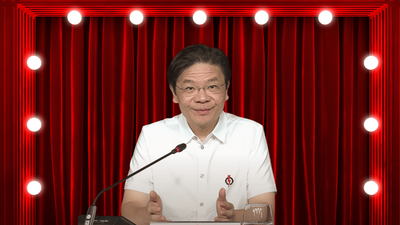For subscribers only
Subscribe now to read this post and also gain access to Jom’s full library of content.
Subscribe now Already have a paid account? Sign in
Some 18 years after he interviewed with the ruling People’s Action Party (PAP), Harpreet Singh Nehal has joined the Workers’ Party. How much of a threat will the kampung boy turned senior counsel pose to the PAP?
Subscribe now to read this post and also gain access to Jom’s full library of content.
Subscribe now Already have a paid account? Sign in
Lawrence Wong’s new cabinet reflects tinkering to distribute power and foster teamwork, his desire to reward performance, and possible strategising ahead of the next election.

Lawrence Wong and the PAP were the big victors at GE2025, though the WP and society at large can take consolation from the results.

Inequality is arguably the most important big-picture issue at stake in the upcoming general election.

A look at the manifesto offerings of the PAP, PSP, SDP, and WP.

If a political system survives long enough, its distortions and unfairness become normalised, writes Paul Tambyah, chairman of the Singapore Democratic Party.
Please click on the link sent to your e-mail to login to your account.